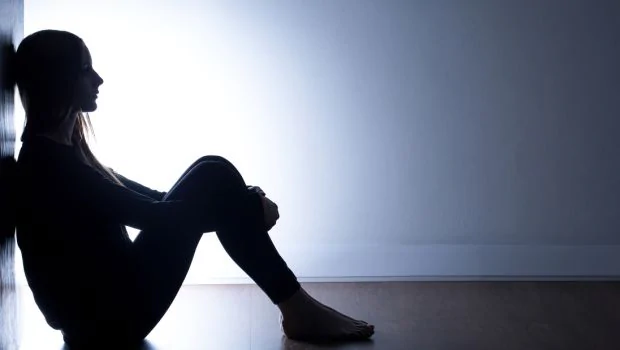Sequel to my previous article on How those Suffering from Anxiety Disorders Can Cope, I was right about the reason for Jasmine’s call. She was having a relapse following the recent scare and happenings caused by the COVID-19 epidemic.
Jasmine was anxious about catching the virus and passing it on to her innocent children. She already had put in stringent measures to avoid catching the virus, including talking to me from her window with her face mask and gloves tightly fitted. This time she had a very different concern, and it had to do with her mum who lived in a village 8 hours away. She said she wished she had brought her mum down here so they could all ‘’die’’ together. She told me about all the gory stories she has been reading on the internet. I watched helplessly as my friend broke down in tears again.
Her husband whom I had spoken to on my way to her place, said she has refused to take any of her medications, which included anti-depressants for her moods.
Well, we all are a bit scared about this ravaging virus, COVID-19. I have entertained, for a few seconds, minutes, fear and anxiety about the recent happenings and could only imagine what Jasmine, who suffered from general anxiety disorder (GAD) was going through. I could not help reasoning that she now has a genuine cause for ‘’worry and anxiety. We were able to get her therapist to schedule a phone session with Jasmine, which calmed her down just a little.
Fears about COVID-19 can take an emotional toll, especially if you’re already living with an anxiety disorder like Jasmine. My thoughts went out to millions of people living with anxiety disorder. I looked up tips to help such ones and all of us keep a positive mind set during these very trying times.
Stay informed—but don’t obsessively check the news
It is vital to stay informed, particularly about what’s happening in your community, so you can follow advised safety precautions and do your part to slow the spread of coronavirus. But there’s a lot of misinformation going around, as well as sensationalistic coverage that only feeds into fear. It’s important to be discerning about what you read and watch. Also try to stick to trustworthy sources such as the CDC, the World Health Organization, and your local public health authorities.
Limit how often you check for updates. Constant monitoring of news and social media feeds can quickly turn compulsive and counterproductive—fueling anxiety rather than easing it. The limit is different for everyone, so pay attention to how you’re feeling and adjust accordingly.
Step away from media if you start feeling overwhelmed. If anxiety is an ongoing issue, consider limiting your media consumption to a specific time frame and time of day (e.g. thirty minutes each evening at 6 pm).
Ask someone reliable to share important updates. If you’d feel better avoiding media entirely, ask someone you trust to pass along any major updates you need to know about.
Be careful what you share. Do your best to verify information before passing it on. Snopes’ Coronavirus Collection is one place to start. We all need to do our part to avoid spreading rumors and creating unnecessary panic.
Focus on the things you can control
We’re in a time of massive upheaval. There are so many things outside of our control, including how long the pandemic lasts, how other people behave, and what’s going to happen in our communities. That’s a tough thing to accept, and so many of us respond by endlessly searching the Internet for answers and thinking over all the different scenarios that might happen. But as long as we’re focusing on questions with unknowable answers and circumstances outside of our personal control, this strategy will get us nowhere—aside from feeling drained, anxious, and overwhelmed.
When you feel yourself getting caught up in fear of what might happen, try to shift your focus to things you can control. For example, you can’t control how severe the coronavirus outbreak is in your city or town, but you can take steps to reduce your own personal risk (and the risk you’ll unknowingly spread it to others), such as:
washing your hands frequently (for at least 20 seconds) with soap and water or a hand sanitizer that contains at least 60% alcohol, avoiding touching your face (particularly your eyes, nose, and mouth), staying home as much as possible, even if you don’t feel sick, avoiding crowds and gatherings of 10 or more people, avoiding all non-essential shopping and travel, keeping 6 feet of distance between yourself and others when out, getting plenty of sleep, which helps support your immune system and generally following all recommendations from health authorities.
Plan for What You Can
It’s natural to be concerned about what may happen if your workplace closes, your children have to stay home from school, you or someone you love gets sick, or you have to self-quarantine. While these possibilities can be scary to think about, being proactive can help relieve at least some of the anxiety.
Write down specific worries you have about how coronavirus may disrupt your life. If you start feeling overwhelmed, take a break.
Make a list of all the possible solutions you can think of. Try not to get too hung up on “perfect” options. Include whatever comes to mind that could help you get by.
Focus on concrete things you can problem solve or change, rather than circumstances beyond your control. After you’ve evaluated your options, draw up a plan of action. When you’re done, set it aside and resist the urge to go back to it until you need it or your circumstances significantly change.
Stay Connected -even when physically isolated
Evidence shows that many people with coronavirus—particularly young, seemingly healthy people—don’t have symptoms but can still spread the virus. That’s why the biggest thing that most people can do right now to make a positive difference is to practice social distancing.
But social distancing comes with its own risks. Humans are social animals. We’re hardwired for connection. Isolation and loneliness can exacerbate anxiety and depression, and even impact our physical health. That’s why it’s important to stay connected as best we can and reach out for support when we need it, even as we cut back on in-person socializing.
Make it a priority to stay in touch with friends and family. If you tend to withdraw when depressed or anxious, think about scheduling regular phone, chat, or Skype dates to counteract that tendency.
While in-person visits are limited, substitute video chatting if you’re able. Face-to-face contact is like a “vitamin” for your mental health, reducing your risk of depression and helping ease stress and anxiety.
Social media can be a powerful tool—not only for connecting with friends, family, and acquaintances—but for feeling connected in a greater sense to our communities, country, and the world. It reminds us we’re not alone.
That said, be mindful of how social media is making you feel. Don’t hesitate to mute keywords or people who are exacerbating your anxiety. And log off if it’s making you feel worse.
Don’t let coronavirus dominate every conversation. It’s important to take breaks from stressful thoughts about the pandemic to simply enjoy each other’s company—to laugh, share stories, and focus on other things going on in our lives.
Take care of your body and spirit
This is an extraordinarily trying time, and all the tried-and-true stress management strategies apply, such as eating healthy meals, getting plenty of sleep, and meditating. Beyond that, here are some tips for practicing self-care in the face of the unique disruptions caused by the coronavirus.
Be kind to yourself. Go easy on yourself if you’re experiencing more depression or anxiety than usual. You’re not alone in your struggles.
Maintain a routine as best you can. Even if you’re stuck at home, try to stick to your regular sleep, school, meal, or work schedule. This can help you maintain a sense of normalcy.
Take time out for activities you enjoy. Read a good book, watch a comedy, play a fun board or video game, make something—whether it’s a new recipe, a craft, or a piece of art. It doesn’t matter what you do, as long as it takes you out of your worries.
Get out in nature, if possible. Sunshine and fresh air will do you good. Even a walk around your neighborhood can make you feel better. Just be sure to avoid crowds, keep your distance from people you encounter, and obey restrictions in your area.
Find ways to exercise. Staying active will help you release anxiety, relieve stress, and manage your mood. While the gym and group classes are out, you can still cycle, hike, or walk. Or if you’re stuck at home, look online for exercise videos you can follow. There are many things you can do even without equipment, such as yoga and exercises that use your own bodyweight.
Avoid self-medicating.
Be careful that you’re not using alcohol or other substances to deal with anxiety or depression. If you tend to overdo it in the best of times, it may be a good idea to avoid for now.
Take up a relaxation practice. When stressors throw your nervous system out of balance, relaxation techniques such as deep breathing, meditation, and yoga can bring you back into a state of equilibrium. Regular practice delivers the greatest benefits, so see if you can set aside even a little time every day.
I hope this helps Jasmine and all of us keep calm, positive and sane during this period.
This too, shall pass.
Kembet Bolton





Comments are closed.